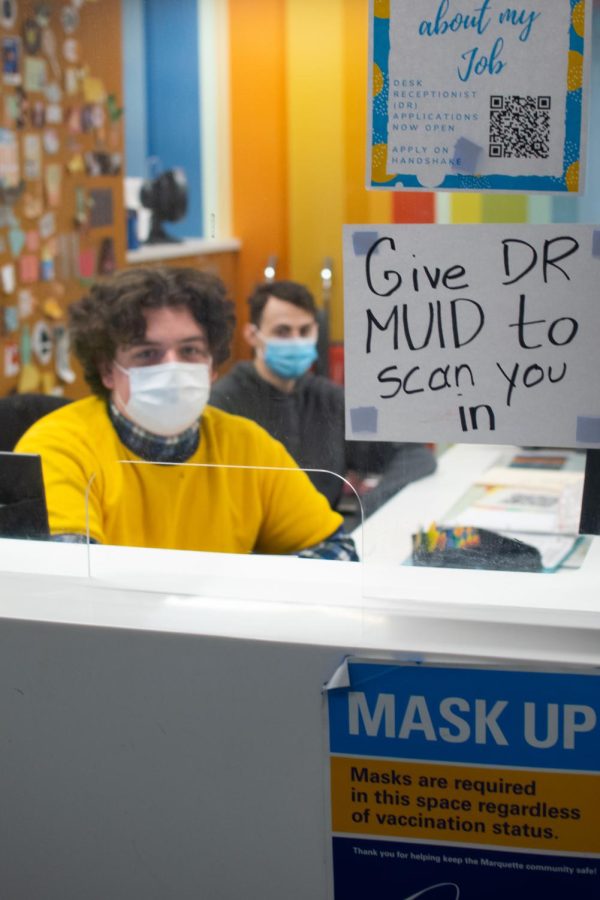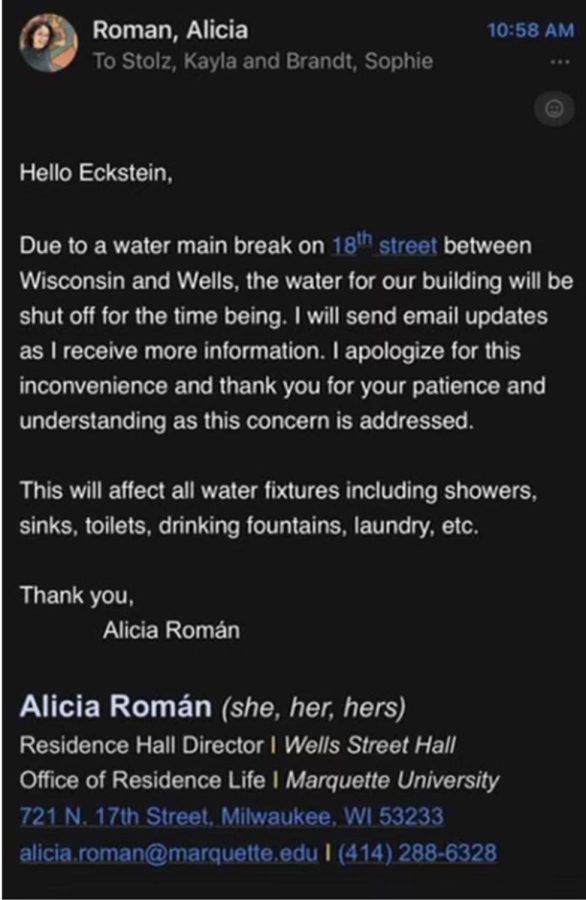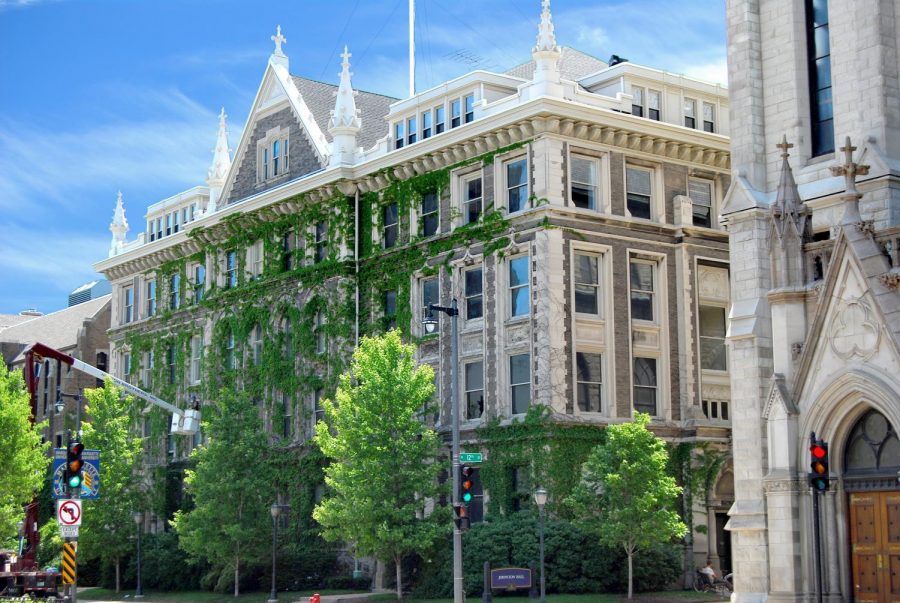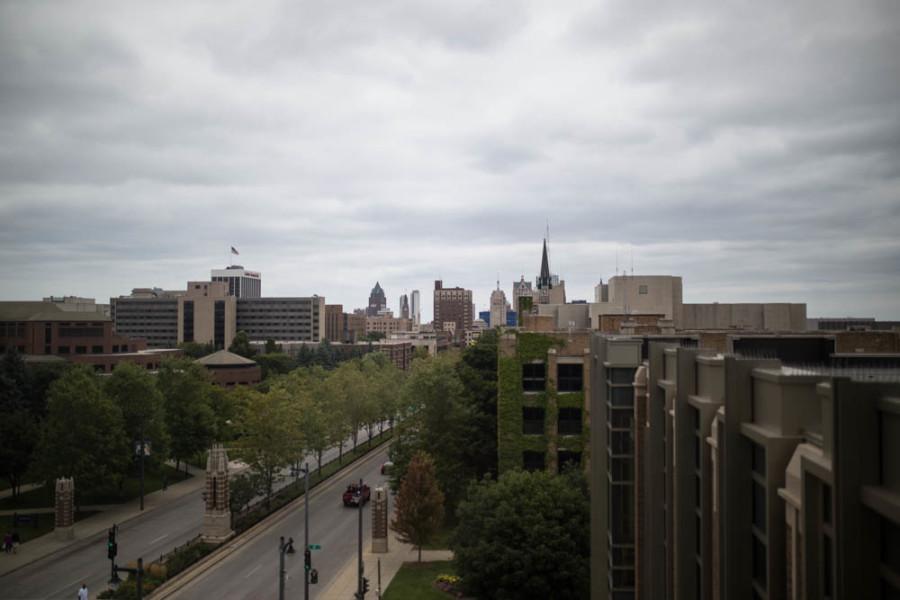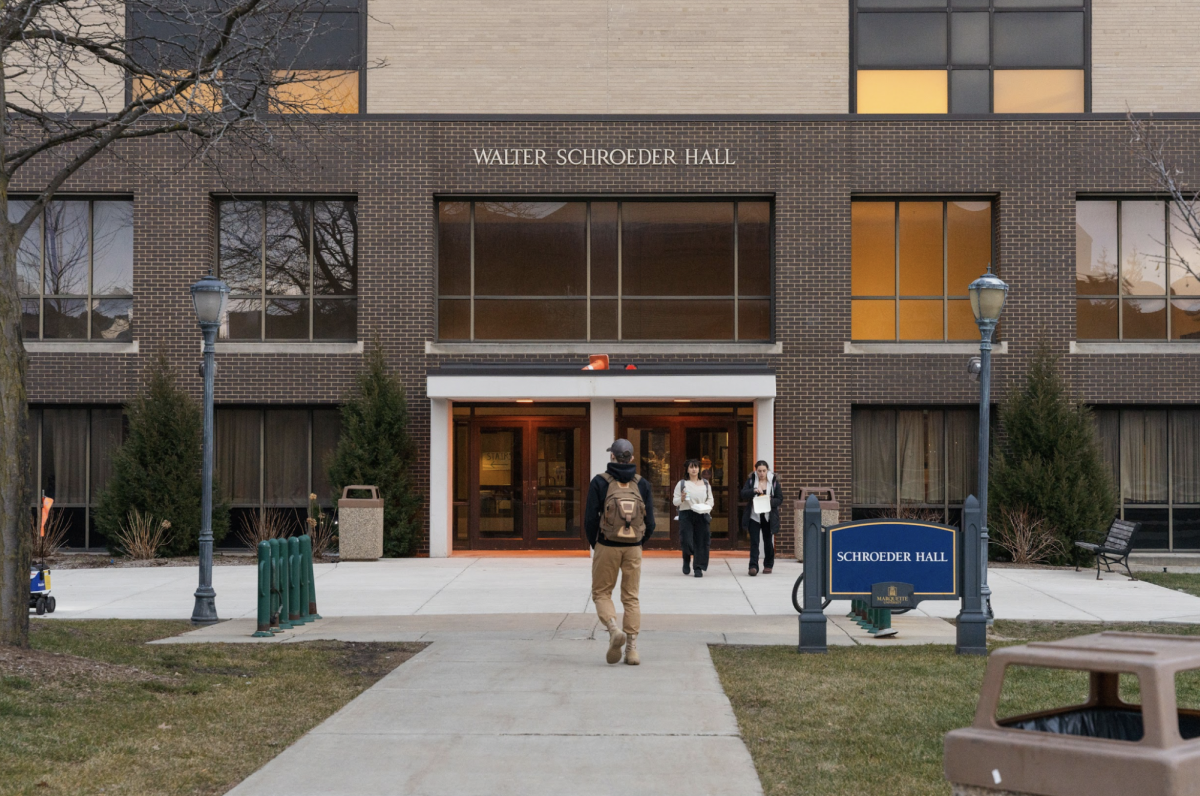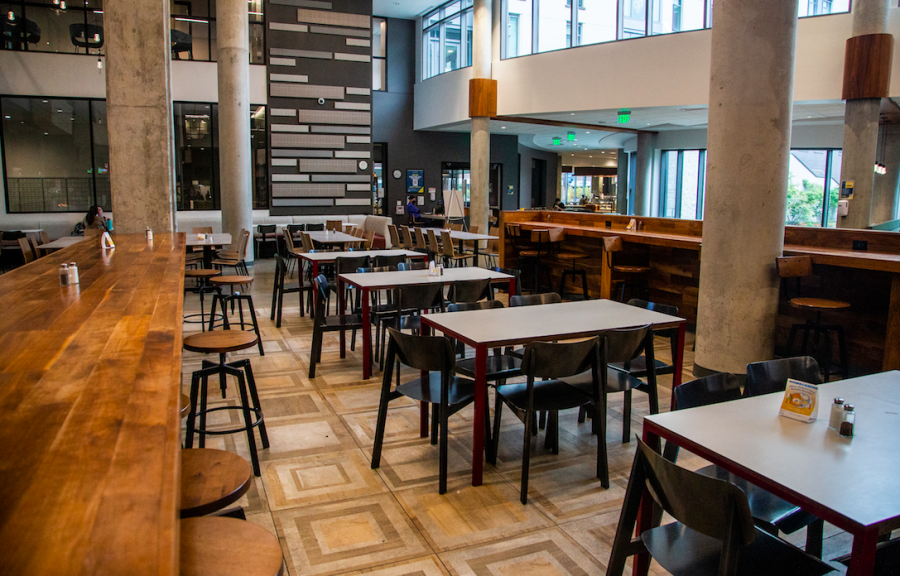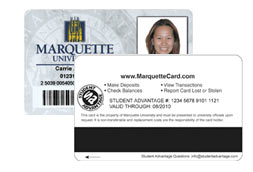Students are not security guards.
Marquette University needs to reconsider its safety protocols for university housing in order to protect students’ safety and rights as student workers.
Humphrey Hall and Carpenter Hall were open over winter break, but were staffed 24/7 by either desk receptionists or Safety Security Officers, university spokesperson Lynn Griffith said in an email.
Students would enter the unlocked doors and swipe their IDs under the supervision of the staff at the desk.
Griffith also said that when students return to campus, all of the entrances to the residence halls will be unlocked and staffed 24/7 by DRs or SSOs.
While DRs often receive Title XI, Red Watch Band and FERPA training to become a DR in residence halls, the training is minimal and does not include active shooter training. DRs also often don’t receive retraining on a yearly basis.
MUPD does offer active shooter training to those who request it on campus. This should be mandatory for students and SSOs working in university housing.
This is an issue.
Students should not be the last line of defense between an intruder and getting into the building. DRs are not security guards.
Recently, two people were hurt after an active shooter fired multiple shots at a fight that broke out in a gymnasium at Catawba College in Salisbury, North Carolina. Although the incident didn’t occur in a residence hall, it showcases that college campuses are not exempt from active shooter threats.
Many front desks have panic buttons that DRs can press in case of an emergency, which would call the Marquette University Police Department. While this is an important safety measure, there should be more lines of defense. Rather than having to call MUPD after an incident has already occurred, Marquette should implement more proactive and preventative measures.
Additionally, not all of the panic buttons are in close reach to where the DRs sit, such as in Humphrey Hall. This inaccessibility makes the panic buttons largely ineffective if a threatening person were to enter the building.
Marquette needs to protect the rights of students’ safety; they should not have to choose between their safety and having an on-campus job.
Moreover, many of the SSOs don’t receive the same security training as security guards. Their duties consist of communicating which students are past visitation hours and assisting resident assistants with their final night tours. SSOs also talk with DRs when they transition at midnight about anything that needs to be addressed in the building.
In addition to staffing the front desks with student workers or SSOs, Marquette should keep all residence hall entrances locked, requiring students to scan their MUIDs to gain access. This would add another layer of safety because only members of the Marquette community could enter the residence halls.
Other universities such as the University of Wisconsin-Madison and the University of Wisconsin-Milwaukee have several residence halls locked 24 hours a day. Residents living in these buildings either have to scan in with a key fob or their student IDs.
While transitioning students out with SSOs during late hours of the night is helpful for making sure only residents are in the building after visitation hours, there is still not a line of security besides the panic button to protect them when they are at the desks. They deserve to be protected as well.
Some academic buildings like Engineering Hall and Johnston Hall are locked after a certain time during the night, so students, faculty and staff who have connections to these buildings have to scan their MUIDs after they lock.
Additionally, there is inconsistency across university apartments. Some are locked at night while others are not locked, and some are staffed while others are not. The Marq apartment building also has a broken front door.
Student safety cannot be left up to chance. Marquette students and families deserve better.
Taking a serious look at Marquette’s safety measures is especially important with the recent increase in crimes on Marquette’s campus last semester.
While MUPD and safety measures like the LIMO van services and BlueLights around Marquette’s campus are often main focuses of safety conversations, implementing simple changes to residence hall safety is essential.
Residence hall entrances should be kept locked at all times, university apartments should be reassessed for consistent locks and front desk staffing and DRs and SSOs should have to undergo active shooter training on a more frequent basis.
Having several and diversified lines of safety could protect students and SSOs in a preventative way as well.
Safety should be a top priority for Marquette across all areas of campus. Preventing these issues from falling through the cracks could be the difference in protecting someone’s life.
Editorial topics by the Marquette Wire are decided at weekly meetings between members of the executive board. The editorial is crafted with leadership by the executive opinions editor. The executive board consists of the executive director of the Wire, managing editor of the Marquette Tribune, managing editor of the Marquette Journal, general manager of MUTV, general manager of MUR and ten additional top editors across the organization.

